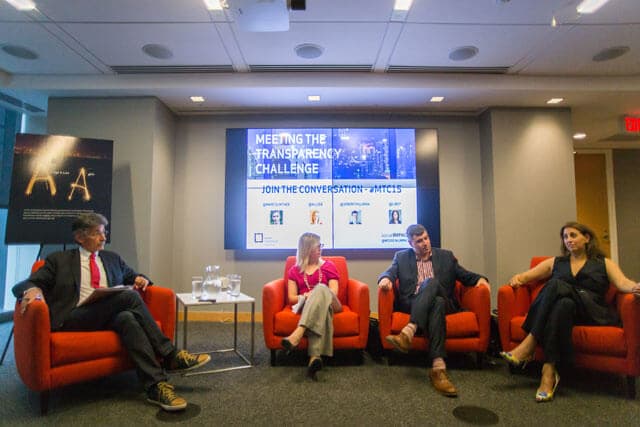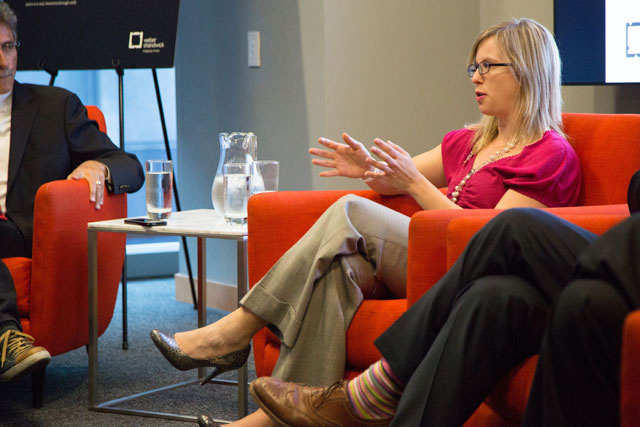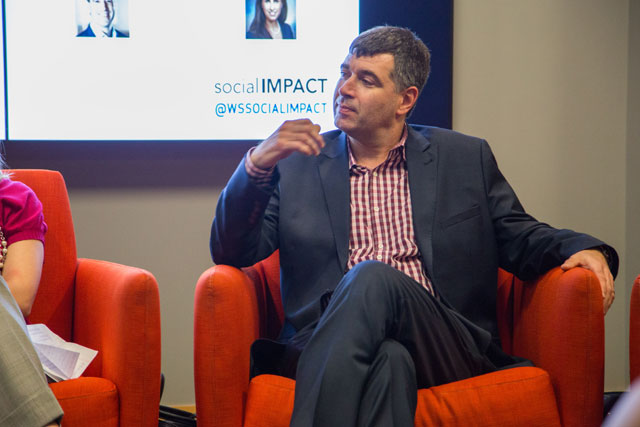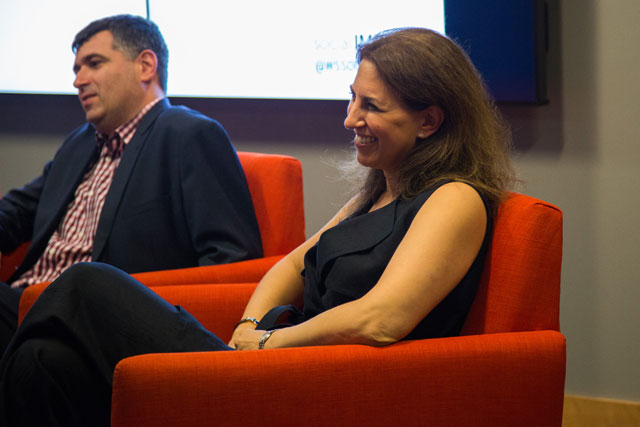Weber Shandwick’s Social Impact Team Hosts “Meeting the Transparency Challenge”
How are foundations bringing transparency to their work to solve complex, global challenges? That’s the question that was the focus of a standing-room-only event that Weber Shandwick’s Social Impact team hosted in Washington, DC.

Marc Gunther, editor-at-large of The Guardian Sustainable Business and author of the blog Nonprofit Chronicles moderated a discussion with clients including Jeremy Hill, Director of Corporate Communications at the World Bank; Joanne Krell, Vice President of Communications at the W.K. Kellogg Foundation; and Allyson Burns, Senior Vice President of Communications and Marketing at the Case Foundation.
The conversation was candid, fluid, and interactive, focusing on how organizations are prioritizing transparency – and identifying the most meaningful and sustainable ways to report on impact. The consensus of the evening was that while progress has undoubtedly been made toward increased transparency, there is still important ground to be covered. Panelists offered the following as advice:
- Fail Forward: Be open and honest about missteps and share lessons learned with the broader philanthropic community. Allyson Burns of the Case Foundation spoke frankly about the importance of failure to the overall transparency discussion. She spoke about the contrast between start-ups, which often support a fast-paced, iterative, failure-as-a-positive environment, and philanthropic organizations which tend to embrace a more risk averse, slower moving culture. As Allyson Burns suggested, perhaps foundations could learn something from the open-sourced mindset that makes start-ups so successful. The Case Foundation’s #BeFearless campaign, which Weber Shandwick helped to launch, is about failing forward (faster) to move on to things that work more effectively.
- Bring Your Stakeholders With You: Include those who support you on your journey. According to Joanne Krell of the W.K. Kellogg Foundation, “shared knowledge is a critical component of social impact and in order to create real change, foundations need to more effectively communicate to core stakeholders.” Additionally, Joanne spoke about the foundation’s efforts to build an organizational culture that supports increased transparency
- It’s a Journey: Integrating more transparency into day-to-day operations takes time. Jeremy Hillman of the World Bank noted that being more open with your stakeholders is a long and potentially daunting process. It takes significant planning and time to cultivate a transparency mindset within an organization. In addition to younger donors seeking transparency in reporting, Hillman also noted that increasing pressure from large donors is going to push the professionalization of giving.
Check out the photo gallery below, and follow Social Impact on Twitter at @WSSocialImpact for the latest on trends and insights in corporate social responsibility, sustainability, and social issues.


